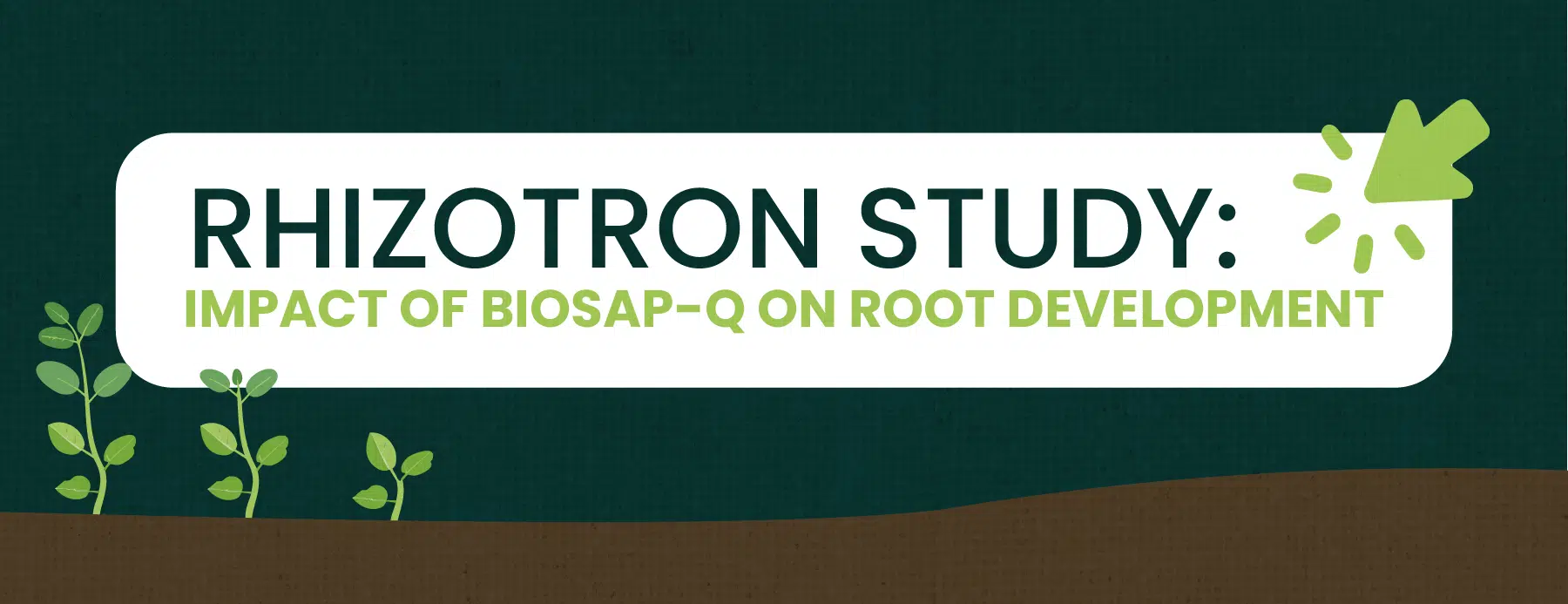Root development is a critical determinant of plant health, influencing water uptake, nutrient absorption, and stress resilience. A rhizotron trial was conducted to evaluate the effects of BioSap-Q (Quillaja saponaria extract) and Yucca schidigera treatments on soybean plants’ root and foliar growth, compared to an untreated control group.
Trial Duration: 4 months, 2024
Materials and Methods
Plant Material:
- Hark soybean variety
Substrate Composition:
- 55% leaf mold/leaf compost
- 20% perlite
- 15% sand
Experimental Design:
- Rhizotron system with initial sowing of three seeds per unit, thinned to one plant per rhizotron
- Treatments are applied as follows:
- BioSap-Q (Quillaja saponaria): 3.38 fl oz per 100 lb of seed (seed treatment); 4 foliar applications at 27 fl oz/acre each
- Yucca 50 (Yucca schidigera): 3.38 fl oz per 100 lb of seed (seed treatment); 4 foliar applications at 27 fl oz/acre each
- Control group: No treatment
Application Schedule:
| T0 | T14 | T47 | T76 |
| 05-31-2024 | 06-14-2024 | 07-17-2024 | 08-15-2024 |
Installed on May 31, 2024, this setup in Purísima, Talca marks the end of autumn and start of winter in Chile—key for managing growth under cooler temperatures, natural light, and a seasonal irrigation and fertilization plan.
Measurement Parameters:
- Stem length and dry weight
- Root length and dry weight
- Root area (analyzed via scanner and ImageJ software)
- Number of secondary roots
Sampling Dates:
| First measurement: | 07-13-2024 |
| Final measurement: | 09-30-2024 |

Results of Root development
Throughout the trial, various parameters of plant development were evaluated to understand the impact of BioSap-Q treatment compared to untreated controls.
Beginning with stem length, plants treated with BioSap-Q tended to show slightly greater elongation than those in the control group.
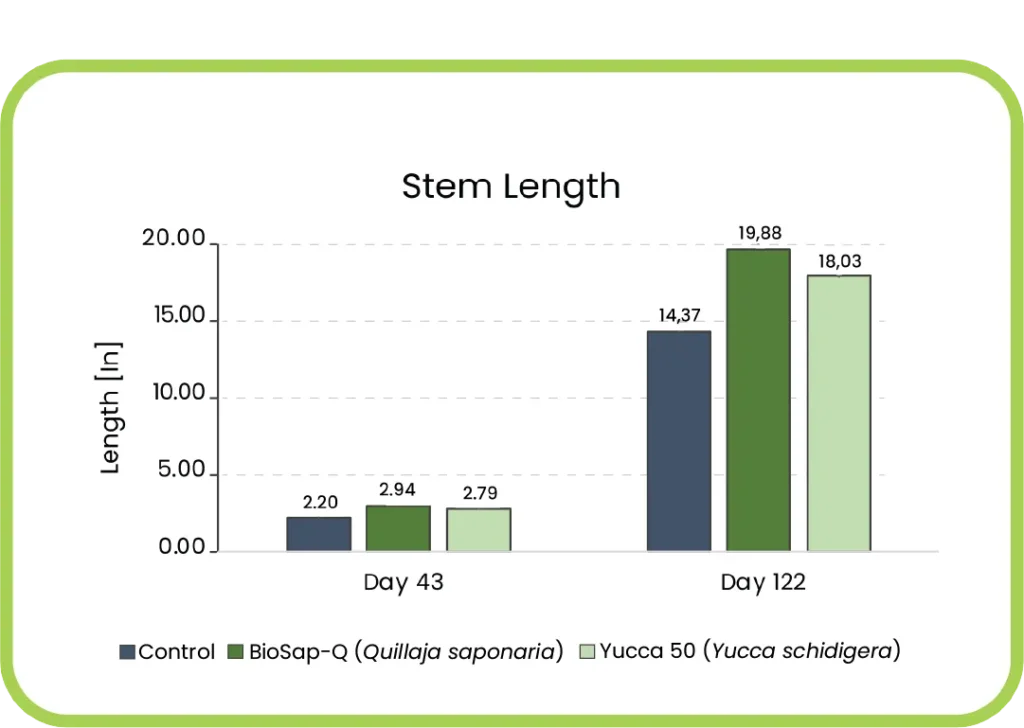
Although the difference was not statistically significant, early trends toward taller stems may indicate enhanced initial vigor, which often contributes to better canopy establishment.
When assessing root length, more noticeable differences emerged.
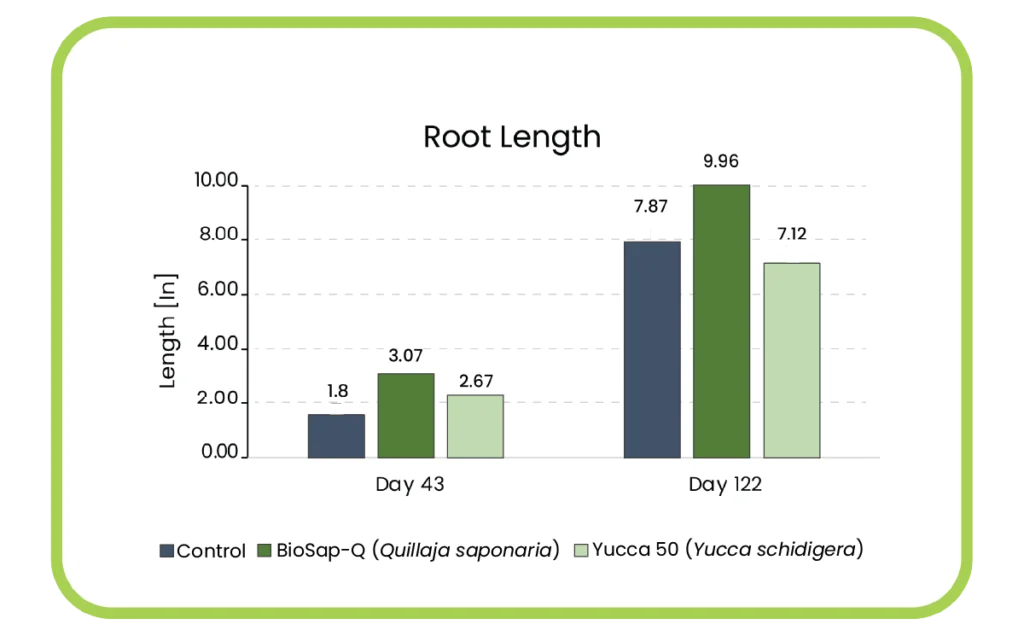
Plants treated with BioSap-Q developed longer primary roots compared to the control group.
In agronomic terms, longer roots enable crops to access deeper soil layers for water and nutrients, providing a strategic advantage during periods of drought stress or low soil fertility. Root elongation at this early stage is crucial for setting the foundation for overall plant health.
The root dry weight measurements further reinforced these observations.
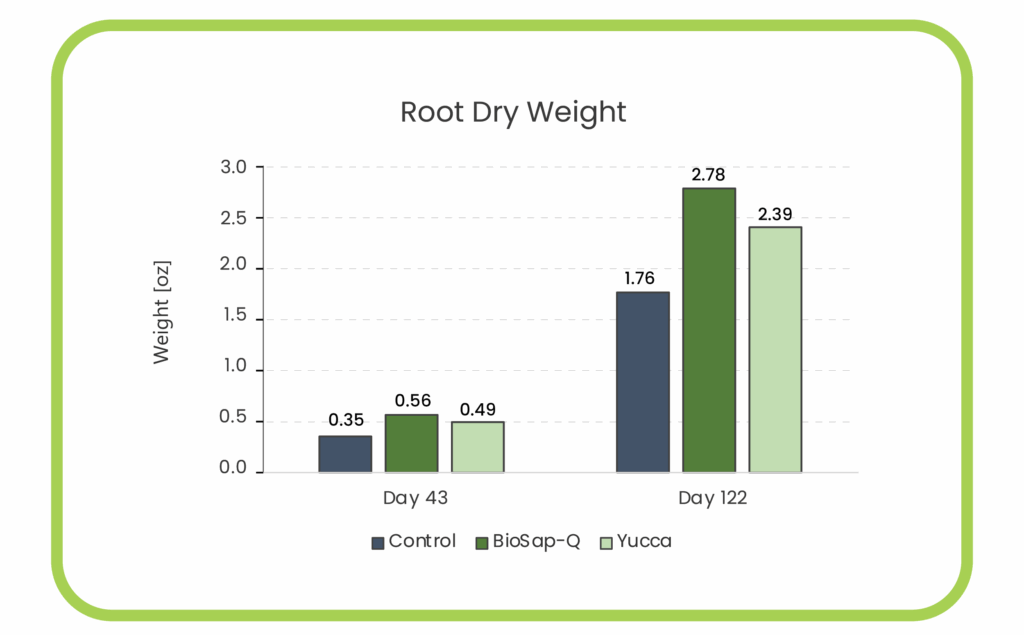
By the end of the trial, BioSap-Q-treated plants exhibited greater root biomass compared to the control.
Higher root dry weight suggests improved energy storage, better mechanical support, and enhanced potential for nutrient uptake.
One of the clearest indicators of treatment effect was the number of secondary roots at Day 122.
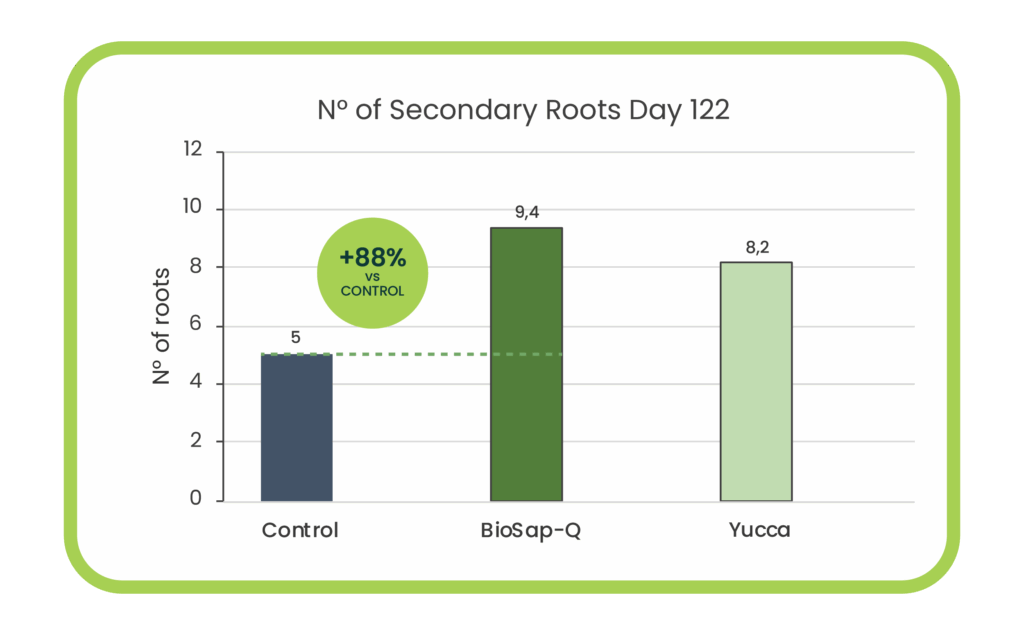
Secondary roots dramatically expand the soil exploration capacity of a plant.
BioSap-Q treatment resulted in a significantly higher number of secondary roots than the control group, promoting greater surface area for water and nutrient absorption.
This characteristic is particularly valuable in maximizing yield potential under field conditions where root-soil interactions directly influence plant performance.
Evaluation of root area provided complementary insights.
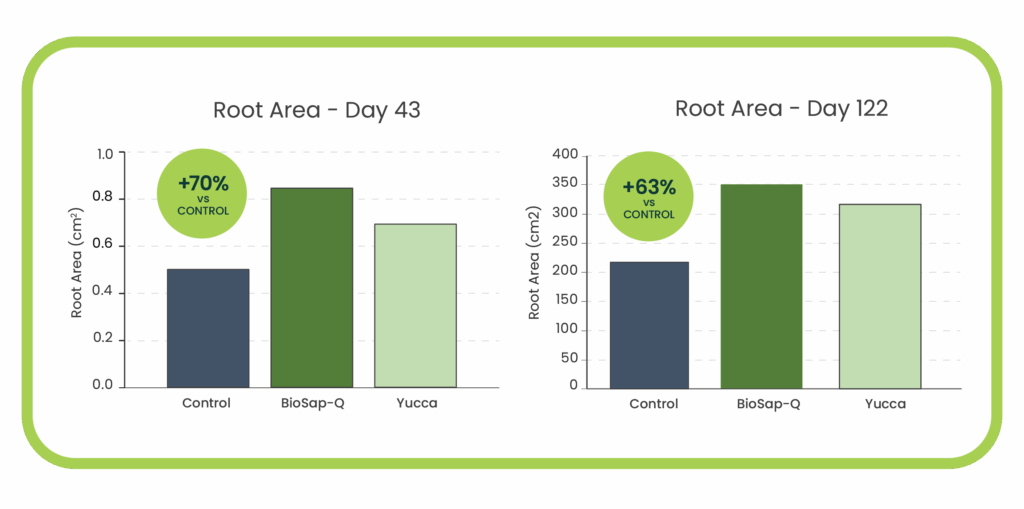
Root scanning and analysis revealed that BioSap-Q-treated plants achieved a substantially greater total root area compared to untreated controls. A larger root area not only increases resource uptake efficiency but also supports better anchorage and resilience against environmental stress.
The stimulation of root system expansion observed here is consistent with the known biological activity of BioSap-Q, particularly its auxin and cytokinin content, which are associated with promoting root cell division and elongation.
Finally, the overall plant appearance at the end of the trial offered a visual synthesis of the effects observed.
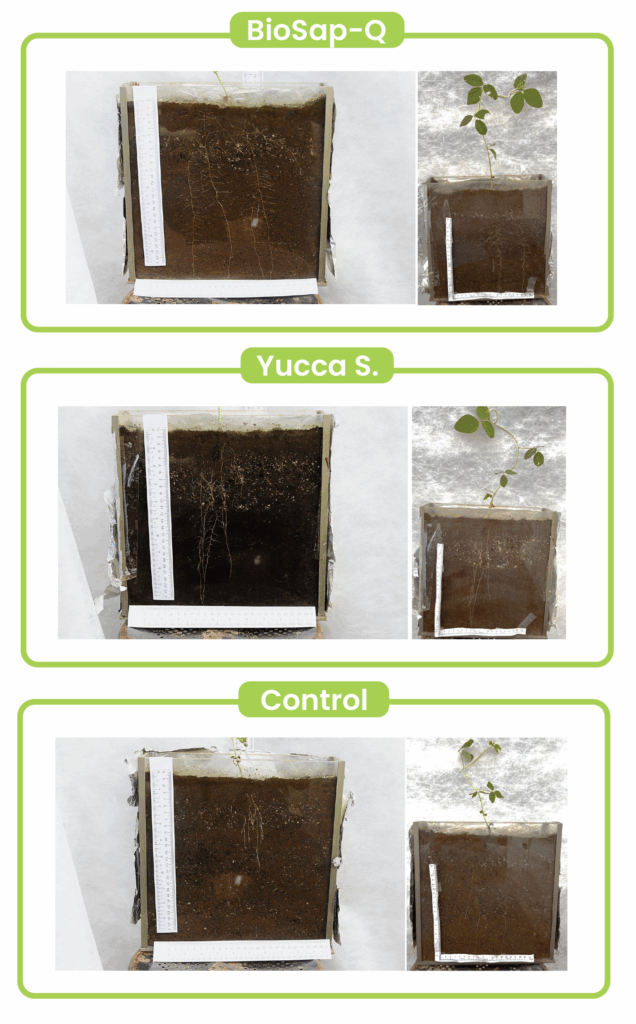
Plants receiving BioSap-Q treatments displayed fuller canopies and more vigorous growth relative to the controls, suggesting that improved root development had a cascading positive effect on overall plant vitality.
Interested in learning how BioSap-Q can support stronger root development in your crops?
Contact our team today to explore solutions tailored to your needs.

